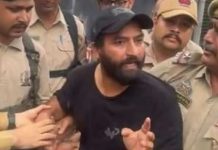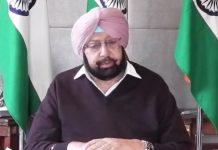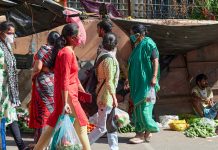Couldn’t political rallies and Panchayat elections be avoided? Couldn’t Kumb Mela in Haridwar be postponed? wonders DR SANGITA LAHA
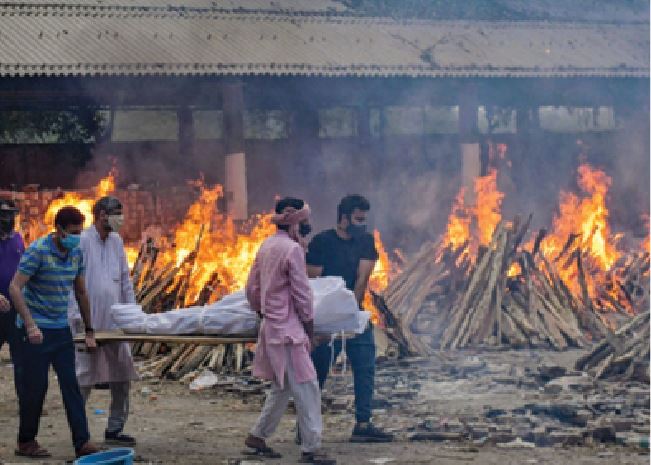
The second wave of Covid-19 in India has proven to be more challenging and aggressive than the first wave; the impact of the pandemic being felt not only in the metro cities, but also in smaller towns of the country. India hit a peak of over 97,000 infections during its first wave in September-October last year but the country witnessed a drop in Covid cases during January and February 2021. It took India just two months to go from the 10-million mark to the 11-million mark in December-February when the cases were on a decline. However, with the second wave hitting hard, it took India just 6 days to go from the 13-million mark to the 14-million mark.
Despite the severity of the health crisis, election rallies, religious congregations like Kumbh Mela and Panchayat elections continued. India’s political parties were campaigning for a series of state elections in West Bengal, Assam, Kerala and Tamil Nadu, as well as local council elections in some parts of Uttar Pradesh and Telangana states. This was at a time when our country is reeling with covid cases and deaths rising again. Even after it became evident that the new surge was turning severe, the political parties continued with big rallies and some gloated about massive turn outs. Didn’t they make India slip out into disaster?
West Bengal
The unusual and unreasonable schedule of the Bengal election during pandemic was unwise and avoidable. After the election, the state of West Bengal is witnessing a steep rise in Covid-19 cases and fatalities. On 11th March 2021, active cases had gone down to 3,110 before they started increasing again. Barely after a month and a half, on 26th April, 2021, the total number of cases in Bengal reached to 94,949 with 11,009 deaths, as per the health ministry data. While several factors have contributed to the spread of Covid-19 infection, large gatherings have been the major reason for the spike in cases Many health experts have opined that month-long political extravaganzas to be responsible for the spread of the corona virus in urban as well as rural regions of the state.
Uttarakhand
According to Johns Hopkins University, by 1st April, 2021, the start of the Kumbh Mela in Haridwar, India had reported 12 million cases and 1,62,900 deaths. But the uptick in cases did not discourage people from attending the Kumbh Mela. Neither any discussion proved fruitful between the government and religious leaders to close it early on account of surging Covid infections, “The Kumbh should have been postponed,” said a historian Gopal Bhardwaj. “Kumbh is meant to provide peace to the inner self. How would one find inner peace if one’s loved one is Covid-infected”? There have been warnings that the Kumbh Mela could have functioned as super-spreader event, yet the events continued spreading pandemic in Uttarakhand state of India. Hundreds of thousands of devotees gathered for the annual event on the banks of the river Ganga for a holy dip, escalating concerns about an exponential rise in Covid cases amid a countrywide spike in infections.
Uttar Pradesh
The massive exercise to hold Panchayat polls in Uttar Pradesh, whose four phases saw at least 9 crore voters queuing up before 2 lakh booths manned by about 12 lakh government servants and security personnel, coincided with a sharp surge in Covid-19 cases in the state. According to official data, between 30th January, 2020 and 4th April, 2021 — in a span of 15 months — Uttar Pradesh has recorded a total of 6.3 lakh Covid-91 cases. In 30 days starting from 4th April, over 8 lakh fresh cases took the case load of Uttar Pradesh to 14 lakhs. The period was marked by the rural polls. On 24th April, 2021, six people on election duty in Uttar Pradesh reportedly died while 1900 police personnel were tested positive. Authorities claimed that a majority of them were on poll duty within the state. In between, teachers’ unions released a list of over 700 teachers. It reported over 700 teachers allegedly died due to Covid contracted during poll duty. Was it correct to hold Panchayat elections by the state government?
High Courts of India
The State governments of our country actually had no plans for an emergency of this nature. While many state governments are struggling with rising Covid numbers, several High Courts have intercepted and are hearing cases related to shortage of Covid-essentials. Over 11 High Courts of India are hearing Covid 19 related cases on daily basis. The most common issues brought before the courts are the shortage of oxygen and other life-saving drugs, and in turn, the courts have come down heavily on the state governments over their ‘shoddy’ management. Here is a brief account of different courts taking up matters related to Covid-19
West Bengal
As Covid-19 cases surge in West Bengal, on 22nd April 2021 the division bench of Calcutta High Court came down heavily on Election Commission and polling officials for not taking proper action to ensure Covid guidelines were followed during voting and campaigning by political parties in the state assembly election.
Tamil Nadu
On 27th April 2021, the High Court of Madras blamed the Election Commission of India for raging the second wave of Covid-19 in Tamil Nadu and Puducherry for not adhering to Covid 19 safety protocols despite several judicial orders. During the hearing if the writ petitions the hon’ble Chief Justice of High Court of Madras expressed his displeasure over the manner in which Election Commission of India had turned a blind eye in safeguarding public health. He further remarked that “Election Commission had been the most irresponsible institution in the last few months and are solely responsible for the situation that India is facing today”
Uttar Pradesh
On 19th April 2021, the Allahabad High Court, pulled up the Uttar Pradesh government for its approach in dealing with rising corona virus cases and ordered for lockdown in five cities — Prayagraj, Lucknow, Varanasi, Kanpur Nagar and Gorakhpur — till 26th April. Hearing Public Interest litigation, the bench remarked on the “inhuman” condition at quarantine centres and the state of Covid treatment. The Division Bench said while ordering a lockdown was the government’s prerogative; it was disappointed by the measures taken since its last order, calling them “eyewash”. The court further said that “those in power must shun the attitude of ‘my way or no way’ and should welcome suggestions from all the quarters”.
The Allahabad High Court has said that the compensation provided to kin of polling officers who died on duty during the Panchyat pols due to “deliberate act on the part of the State and the State Election Commission to force them to perform duties in the absence of RTPCR support” should be atleast 1 crore.
Delhi
The Delhi High Court (HC) has moved under Article 226 (extraordinary jurisdiction to protect personal liberty) of the Constitution of India seeking judicial interference by private entities and individual citizens. The petitions pertain to the production and allocation of medical oxygen and the urgent requirement of basic medical infrastructure such as beds and drugs.
A division bench of the Delhi High Court pulled up the current Delhi government in the national capital over its handling of the Covid-19 crisis, saying its confidence was “shaken”. If the government cannot manage the situation, the court will ask the Centre to step in. “Set your house in order. Enough is enough. If you cannot manage it, tell us, and then we will ask the central government to send their officers in and do it. We will ask them to take over. We cannot let people die like this,” the court remarked.
It also sought a report from the government on the deaths in hospitals on account of oxygen shortage. The court noted that the government has failed to check the alleged mismanagement in the distribution of medical oxygen and rampant black marketing of oxygen cylinders and essential Covid-19 drugs in Delhi.
Gujarat
The Guajrat High Court expressed its displeasure over the state government handling the Covid 19 pandemic .It advised that the state government should impose lockdown and the entire exercise of the government lacks transparency
The Supreme Court, under Article 32 (extraordinary jurisdiction to protect personal liberty), has taken suo motu cognisance of the pandemic. Two issues demand attention. First, is the suo motu petition being heard by the hon’ble Supreme Court an act of interference in the executive policy domain, specifically on the issue of vaccination. The Apex Court has directed the Centre and State governments to put on record the efforts taken to curb the spread of the virus and the measures that they plan on taking in the near future. The apex court further directed that the Centre shall revisit its initiatives and protocols, including on availability of oxygen, availability and pricing of vaccines, availability of essential drugs at affordable prices and respond on all other issues highlighted in this order before next date of hearing. Further, the Central Government to formulate a national policy on admissions to hospitals which shall be followed by all State Governments.
There is, without a doubt, a major vaccine crisis. The apex court has asked the Centre for its policy for mass inoculation and medication, and framed some important questions/remarks.
First, what is the premise on which the State has concluded that decentralised procurement of a scarce commodity in the current health crisis? What is the best policy towards rapid mass inoculation?
Second, as the right to life (Article 21) is a fundamental right guarantee under the Constitution and the current vaccine policy has a direct effect on this guarantee to life, has the Centre finalised its policy keeping in view the commitment to protecting public health?
Third, has the socio-economic disparity between citizens been considered when shifting the burden of cost onto them?
And fourth, why is the Centre, in this national emergency, not exercising powers under Section 92 and 100 of the Patents Act 1970, which would help various manufacturing companies augment the production of vaccines and drugs?
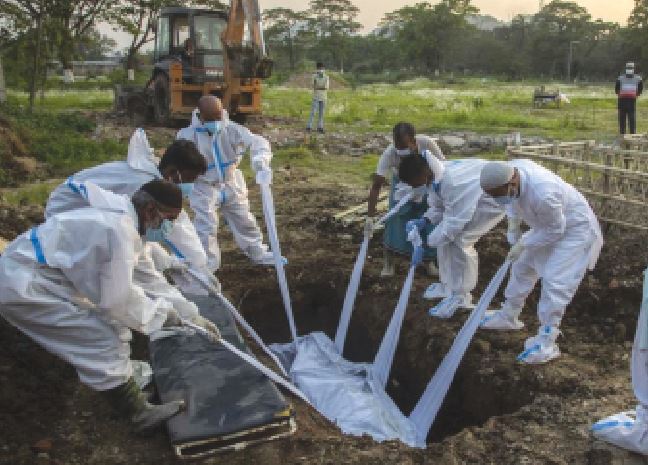
Conclusion
One must not misunderstand. The suo motu hearing isn’t adversarial or seeking adjudication between two contesting parties. What the court is doing is exercising its constitutional authority under Article 32 to fulfil its constitutional role of maintaining checks and balances within the framework of judicial review.
This is significant since the executive’s decisions affecting the lives of a billion people have been opaque.. The hon’ble Supreme Court is not seeking to take policy decisions, but is seeking public accountability and transparency on the executive’s policy decisions and its failure to act in time. This exercise of judicial review to maintain accountability is the institutional duty of a constitutional court and an essential facet of constitutional democracy.
The author is an Associate Professor & Dean of National University of Study & Research in Law. Views are personal.
tehelkaletters@gmail.com








